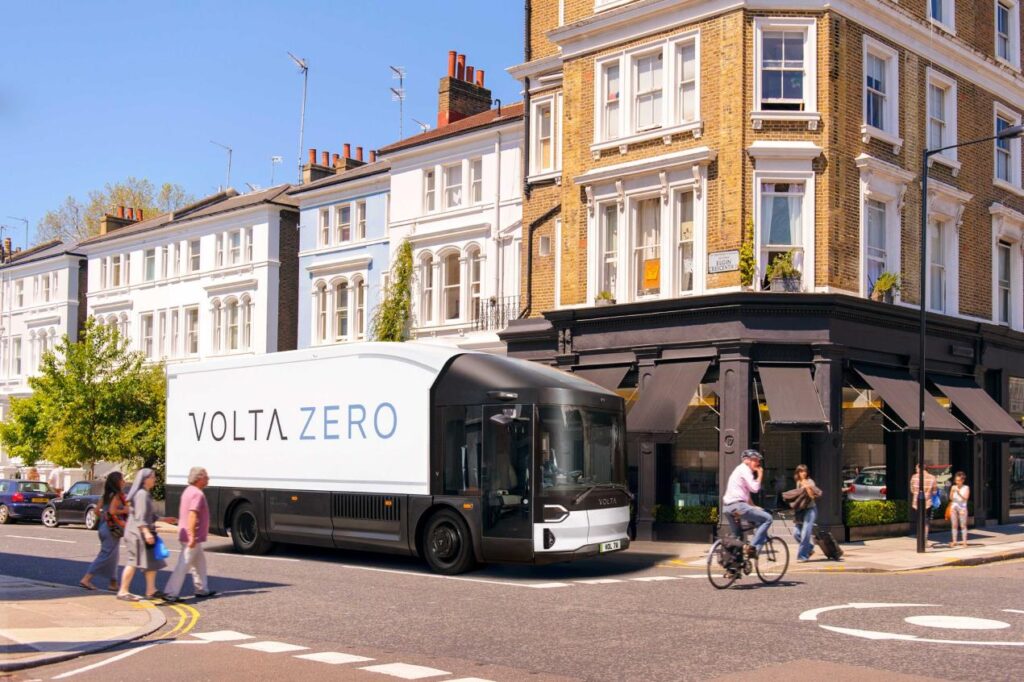As Volta files for bankruptcy, ParcelHero asks, Has the spark gone out of the electric truck market?

This year has seen electric truck manufacturers struggle, with Volta going bankrupt and Arrival laying off 800 UK workers. The home delivery expert ParcelHero says Volta’s fate shouldn’t be a shock. Electric truck makers Lordstown, ELMS and Smith have all ceased manufacturing or have filed for bankruptcy protection.
Volta Trucks, makers of the world’s first purpose-built 16-tonne electric truck, has filed for bankruptcy in Sweden and is set to put its UK operations into administration. The home delivery expert ParcelHero says Volta has joined a growing list of specialist electric vehicle manufacturers who have pulled the plug on their vans and trucks.
ParcelHero’s Head of Consumer Research, David Jinks M.I.L.T., says: ‘The switchover to electric vehicles for the final mile is happening, make no mistake. However, as the growing roll call of failed commercial electric vehicle manufacturers shows only too well, few specialist startups can get the funding to match their ambitions.’
‘Volta had a good product and a healthy list of potential customers engaging with its testing programme, including Marks & Spencer, DB Shenker and DSV. Volta’s engineering and development was largely carried out at sites in the UK. However, this summer’s collapse of its battery supplier Proterra (itself a maker of electric commercial vehicles) severely disrupted its supply chain.
‘As early as 2016, alarms should have been sounding in the highly charged world of electric van manufacturing. That’s when Smith Electric Vehicles, a respected UK pioneer in electric commercial vehicles since the 1920s, finally closed its UK and European operations. Its US counterpart suspended production in 2017.
‘This year, Banbury-based electric van pioneer Arrival announced it was laying off 800 of its UK workforce as it switched its focus to the American market. It’s an anticlimax from the excitement of 2022 when it produced its first production verification vehicle from its Bicester Microfactory. It’s thought the company will focus on plans for its new XL van in the US, where the market enjoys greater government subsidy, and is currently concentrating on refinancing.
‘Like Volta, other specialist electric van and truck manufacturers have also suspended or ceased production. These include US-based Electric Last Mile Solutions (ELMS), which re-worked Wuling Chinese vehicles for the US market, and Lordstown, a high-profile pick-up truck manufacturer based in a former GM plant in Ohio. It was once praised for preserving jobs by former President Donald Trump.
‘On the surface, therefore, it would seem the UK and global demand for commercial EVs, particularly for urban deliveries, is not as great as anticipated. However, that isn’t the case. UK battery electric van registrations grew 18.9% in August and a total of 11,414 zero-emission electric vans have been registered so far this year in the UK – up 16.4% on the same period in 2022.
‘Most retailers and couriers are playing it safe, however, and buying electric versions of existing commercial vehicles, rather than new specialist vehicles from startups. In fact, the UK is now a centre of electric van production for many long-established brands. A £100m investment has been made in EV production at a former GM plant at Ellesmere Port. Last month, production started there on Vauxhall Combo Electric, Opel Combo Electric, Peugeot e-Partner, Citroën ë-Berlingo and Fiat E-Doblò vans. These are all part of the new Stellantis conglomerate’s range.
‘Perhaps it’s unwise to write off specialist electric commercial vehicle production in the UK just yet, however. The Essex-based electric vehicle company Tevva delivered its first 7.5-tonne battery-electric truck to Kinaxia Logistics in September 2022. In January this year, it won EC approval for its new truck. Future customers could include Travis Perkins, Expect Distribution and Royal Mail. Tevva has also had its share of financial issues, and a merger with ElectraMeccanica has just fallen through, but vehicle deliveries continue and the trucks are getting good user feedback.




